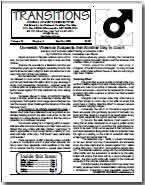 You have the feeling there’s not much in the way of bad marital behaviour family lawyer Robert Larkins has not seen, particularly as marriages grind to a close.
You have the feeling there’s not much in the way of bad marital behaviour family lawyer Robert Larkins has not seen, particularly as marriages grind to a close.
A professional life spent watching couples battle their way through divorce — fighting not only each other, but their ignorance of the court system — has provided plenty of insight into the messier side of human nature.
On the up-side, Larkins says Australian divorces are not getting any nastier. But on the downside, the Melbourne barrister sees hundreds of people losing thousands of dollars, and plenty of heartache, while struggling to represent themselves.
It was seeing people “walking around in a confused state” in court that inspired Larkins to pen his frank divorce manual, Breaking Up. For starters, he observed that many people have no idea how much the divorce proceedings, let alone the eventual financial settlement, could cost. That cases taken to court routinely cost each party $30,000 to $50,000 (and often plenty more) comes as a shock to many. The fact the average family law solicitor costs $300 to $600 an hour, billed in six-minute intervals, is also often a surprise.
“The system’s just not working well when you’ve got a mortgage on your home, and a bit of super and you have to spend those sort of bucks to get separated — that’s not right, it’s just too expensive,” says Larkins, who candidly admits he has been “thrown out (of marriages) twice”.
He understands why, with costs like these, 40 per cent of people in Australian divorces choose to represent themselves. But he also sees the many downsides of this, when hundreds — mainly women — go into court with no understanding of what to do.
The Federal Magistrates’ Court, he says, supplies a single A4 page of information. “But you get in there and see people making botches of it. Judges cringe when someone’s self-represented because they have got to be fair and can’t give them legal advice when the other partner has a lawyer.”
Larkins has seen wives who had no idea about the true state of the family finances struggle on their own in court to try to win a fair share of the “marital financial pool”, and husbands who have obviously hidden large amounts of money.
“Frequently, there are are women who simply can’t access the (marital) money,” he says. If the money is well hidden, he adds, lawyers will often have to advise clients to let the money go and get on with their lives.
“I was involved in a case recently when a woman didn’t know what assets there were — she was completely in the dark. He’s got a good lawyer; she’s going, ‘What do I do?’ A lot of women in that state are the very women who take their legal advice (in happier times) from their husband,” Larkins says.
He says many people entering divorce are tempted, presumably by bitterness, to “fight on principle” over assets, and end up paying dearly for it. All it takes is for one partner to be completely unreasonable for what could have been a much less expensive, mediated settlement to turn into a financial catastrophe for both parties.
Divorcing couples usually fall into one of two groups — the most difficult for all concerned being the one in which tempers and legal actions fly. “One group says, ‘This is a matter of principle, I worked my fingers to the bone and you are not going to get a penny of this money’. So you might say to them as a lawyer: ‘This is going to cost you a fortune in legal fees,’ and they say, ‘I don’t care, I’d rather you had it than she (or he) had it’. You hear it regularly,” he says.
Despite his experience, Larkins sounds as if he struggles to believe people willingly make things worse. These are often intelligent people whose rational side evaporates during a divorce: “I think everyone’s seen a normal person become completely irrational. It strikes the terror into you; you know you’re not going to be able to have rational conversations.”
Thankfully, the other group of clients holds on to its wits. They’re people who say: “This is a commercial transaction, I want to get the best result for the cheapest price, like any other transaction. I want to get out of here and I don’t want to spend $70,000 in legal costs. I want to get on with my life.”
He says these more pragmatic people can settle cases out of court for a fraction of the cost — financial and emotional — faced by the other group. Needless to say, he advises clients and readers never to fight a case on principle.
AS a family lawyer, Larkins could have sat back and continued to gain, financially at least, from protracted legal battles between divorcing couples. But seeing so many people at sea in the court system inspired him to address it.
People he saw representing themselves in the Family Court “had no idea how to cross-examine, how to negotiate with a lawyer and really no idea how to present their case in affidavits”, says the author, whose previous book was on navigating the Australian funeral industry.
Seeing children suffering because of their parents’ poor handling of separation was another motivator to write the book. One of the golden rules in Breaking Up is “don’t denigrate the other parent to the kids”. Such is the emotional impact of divorce, he says, that warring parents often forget — and must be reminded by the courts — that the interests of children are paramount.
Though his book could be seen to be encouraging people to run their court cases, Larkins says he has not written it as such. He reminds readers early on that if they can negotiate a settlement between themselves they can do a DIY divorce for less than $1000.
Mediation is always the best way to come to agreements, and it is hoped a soon-to-be introduced arbitration system will also alleviate the need for as many court cases.
For those who do decide to drag themselves and their partner through court, Larkins hopes he has been able to furnish the necessary tools.
One group who may well find the book useful comprises women who have given up work during marriage and feel they are no longer employable (or are perceived that way). Larkins says they are often in the weakest position when attempting to negotiate their way solo.
He paints a worrying picture of such cases: “Women often put themselves in that position; they have no super, they have given up work — I even know barristers who quit work to bring up a family . . . and all of a sudden if the fella decides to leave she’s there with no super and no property.”
This is allowed to happen in some cases simply because the woman is under-represented and the man, who can afford a lawyer, holds all the legal cards: “The process is complex. (Self-represented divorcees) don’t understand the difference between evidence and what they want. You see them trying to cross-examine and stopping halfway through when they get an answer they don’t agree with. They have just no understanding of how it works.”
Part of the problem is the structure of the Australian legal system: “To resolve disputes through the adversary system in court works fine in criminal trials, and can work with two major corporations disputing an issue…however, when it becomes a couple, the same regime doesn’t work effectively at all.”
When people do get through the system, Larkins says he is dismayed to see how many of them then “drift unconsciously” straight into another live-in relationship that can put them at risk again. New legislation governing the division of assets owned during de facto relationships effectively gives people who have lived with a partner for as little as two years very significant claims.
Divorcees considering a new relationship plunge “ought to read Chapter 26 (of Breaking Up)”, he says. “You ought to be aware that even presenting to the world as a couple is part of a definition of being in a de facto relationship.”
He warns that many people are ignorant of their responsibilities and the rights of partners under the new laws, and says he is already seeing men — and older women who start relationships with younger men — having serious problems due to the changes.
Unfortunately for the main earner, “the more generous you are to a partner, the more they can claim. If they’ve been financially dependent on you, your generosity can come back and bite you in the bum!”
He adds: “You used to think it was only men who had money and power (in relationships), but these days I know a lot of richer women who are in financial positions of power and support a younger man who could use the fact he’s being supported as an example they are in a de facto relationship.”
He says it is amazing how many people he meets who have not even finished their divorce case but turn up with a new boyfriend or girlfriend. “Some people just leap from one relationship to another — they’re the particularly vulnerable ones,” he says. “But (as if) anything I’m going to say in the book is going to stop them doing that!”
>>Breaking Up — A Self-Help Guide to the Courts and the Law, by Robert Larkins (Penguin, RRP $32.95).


